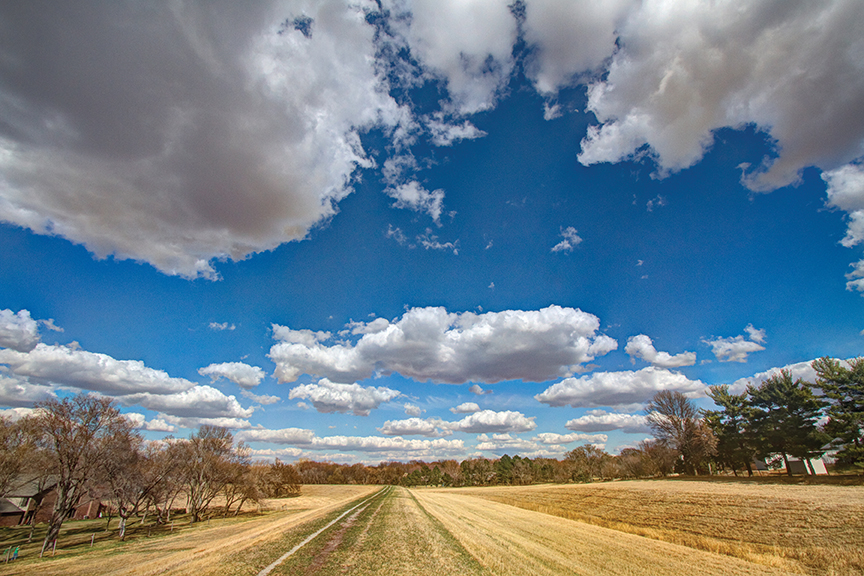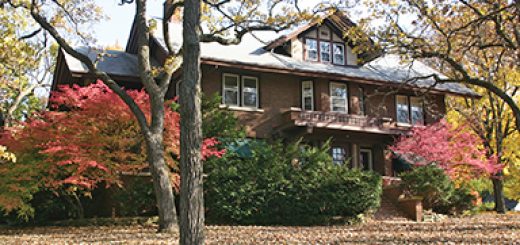A Growing Yet Cleaner and Greener Lincoln

by Milo Mumgaard
The modern city is a place with a remarkable diversity of people, culture, and entrepreneurial spirit. This well describes Lincoln, Nebraska, which added over 30,000 people in the last seven years alone — the size of
most mid-size Nebraska cities — and is set to be home to nearly 400,000 residents by 2040. Long known as a great place to raise a family, Lincoln now is also known for its surging and dynamic economy.
As it grows, Lincoln continues to have some of the cleanest air, tastiest water, most reliable energy, and best parks, green spaces, and trees in the nation. But this growth brings with it the challenge to insure that present and future generations will continue to enjoy these essential aspects of our high quality of life.
To meet this challenge, Lincoln is committed to becoming one of the most sustainable, green cities in the region and the nation. In so many ways, Lincoln is staking its future on wisely and cost-effectively addressing climate change and insuring long-term health and economic opportunity for everyone in the community.
The City of Lincoln is rising to the challenges of the growing, modern city. In the process, Lincoln is becoming even cleaner, greener, and healthier.
These exciting signs of progress include:
• Driving our recycling and waste diversion rates to higher than the national averages. Lincoln is known for its clean streets and efficient waste hauling system. Now, through new programs and policies, Lincoln is poised to be one of the leading cities in the region on recycling, composting, and waste to energy. At the new Pinnacle Bank Arena, at least 75% of its waste will be recycled or composted — making it one of the most sustainable facilities in the nation.
• Fostering more water conservation and identifying new reliable water sources. As water becomes ever more precious, the city is acting now, not waiting until tomorrow to help residents and businesses efficiently use water and plan for the future. The city also just built a new 20 million gallon per day well in its Platte River well field, boosting the reliability of Lincoln water even in the face of potential droughts.
• Helping residents to live in more energy efficient homes. The Lincoln Electric System is spending millions each year for energy efficiency upgrades through its “Sustainable Energy Program,” benefitting thousands of ratepayers. This helps homeowners and businesses to enjoy lower bills, provides more comfort through hot summers and cold winters, and lowers the costs to all ratepayers.
• Upgrading energy building codes to assure high-performing, energy saving homes and workplaces. Lincoln’s highly active home building and commercial construction industry recognizes the value in boosting energy savings through up-to-date energy codes, saving thousands of dollars for new homeowners
and businesses.
• Developing new reliable renewable energy sources. Lincoln is “solar friendly,” with excellent solar resources, new renewable energy prices and rebates, and easy process. The Lincoln Electric System is aggressively buying wind power, and renewable energy is now a large and growing percentage of the municipal utility’s power base.
• Setting more compact urban growth as a development goal. While Lincoln has plenty of wide open, inexpensive room to grow, Lincoln also recognizes it is highly efficient to fully use its existing infrastructure. In the last year, Lincoln was nationally honored for its helpful promotion of in-fill and compact growth development.
• Adding “green infrastructure” as part of future development. As the city grows, new stormwater “best management practices” are now in place, using “green infrastructure” such as green roofs and bioswales to lessen our floods, better store raging stormwater, and lower urban heat.
• Promoting new transit options. Lincoln continues to be one of the most bike-friendly cities in the region with its remarkable trails system, and is set to add a bike share program to its downtown. The StarTran bus system has added five new CNG busses, with more to come, as part of its energy reduction and modernizing initiatives. And people can now recharge their electric cars in Lincoln’s public garages.




Recent Comments